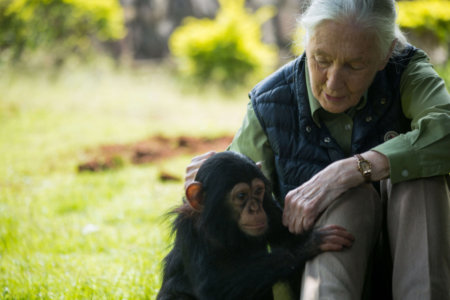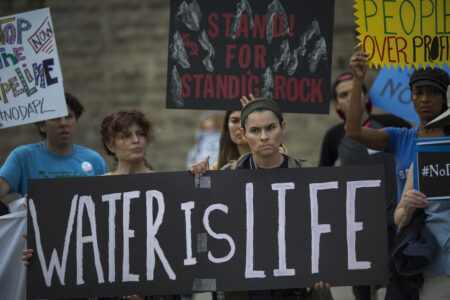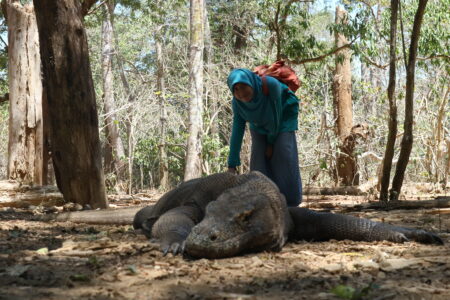
The world, as we know it, is falling apart.
In the documentary “Before the Flood,” Leonardo DiCaprio shows us our current reality — ice caps are melting, forests are disappearing, and rising seas threaten to swallow coastlines.
The worst part? We know it’s happening. From the pollution and biodiversity loss to the soil degradation and water scarcity, we’re staring down the barrel of what is a looming disaster ahead of us.
So, how do we fix it? Real change requires action, and that’s where studying environmental science comes in.
There is a growing demand for experts with advanced knowledge and skills to create sustainable solutions. The next generation of scientists, policymakers, and innovators must aim to shape a more sustainable future for all — and this is where you may be interested in joining the fray.
As famed English biologist and natural historian David Attenborough once said: “No one will protect what they don’t care about, and no one will care about what they have never experienced.”
However, before you enrol on an environmental science degree, there are a few things former and current students have to share about it:
Some key advice about pursuing an environmental science degree, from students who’ve done it:

Gunawan in one of Monash Clayton’s science labs. Source: Brigitta Maria Andrea Gunawan
Brigitta Maria Andrea Gunawan
Degree: BSc, Ecology and Conservation Biology
University: Monash University
At just 17, Gunawan joined her first fellowship, the 30×30 Ocean Echo Fellowship and founded 30×30 Indonesia.
Since then, her journey has been nothing short of extraordinary. She’s been recognised as a National Geographic Young Explorer and a High Seas Youth Ambassador and has set sail on expeditions with OceanX and Darwin200.
But even with all these experiences, she knew she wanted to keep learning, leading her to pursue her studies at Monash University.
“I love that Monash gives me the flexibility to explore my interests,” says Gunawan. “I’ve taken psychology, languages, business innovation, and even a unit that sent me to Fiji for two weeks. It’s exciting to branch out while staying focused on my environmental science degree.”
More importantly, however, is her advice to those interested in studying environmental science — know your “why.”
“Don’t just think about the job you want. Think about the person you want to become,” she said. “Your degree is more than academics; it’s about growth, resilience, and purpose. Challenges are inevitable, but if they connect to your passion, you’ll find a way to thrive.”

Mega Trishuta Pathiassana grew up in a small village in Indonesia’s Central Java region. Now, she’s travelled around the world learning all there is to environmental science. Source: Mega Trishuta Pathiassana
Mega Trishuta Pathiassana
Degree: Bachelor of Economics, Natural Resources, and Environmental Economics
University: University of Indonesia
There is a big need to acknowledge that the use of natural resources is a big cause of conflict between countries and communities, and understanding the reasons behind this clash is how we can maintain our environment and natural resources.
Pathiassana is one of those eager to uncover more about the field. She had one simple goal: to become someone beneficial to her community.
How would she achieve it? By going global.
“I already had plans made even before I graduated with my bachelor’s; I wanted to have other perspectives and experience from another country,” says Pathiassana. “Because sometimes it’s not enough to just stay in my country.”
Her experience studying environmental science has brought her across countries like Taiwan, Sweden, and even South Korea, where she completed her PhD in Forest Environmental Science, and was an awardee of the Graduate Scholarship for Excellent Foreign Student and the SNU President Fellowship Programme.
One of her projects involved creating organic pesticides for biocontrol and a type of fertiliser that allowed farmers to double – sometimes even triple – their harvest.
“I believed that if I studied abroad, I could learn something new and use that knowledge for my country, especially to develop the smaller communities in my area,” she said. “Maybe in the future, my research can benefit not just me but someone else and the larger community.”
View this post on Instagram
Nikshep Trinetra
Degree: Master’s in Environmental Science
University: University of Wageningen
Trinetra started out like many other Indian students — pursuing chemical engineering, as it was the typical path.
But he had always felt like a misfit, and towards the end of his engineering degree, he finally understood why. It went against nature, which he was passionate about.
“I did an internship where I could hike in the Himalayas, and joined India Hikes to work in waste management for a while,” says Trinetra. “I trained people on waste separation and creating biogas with wet waste; this was the turning point for me.”
His next step? Pursuing a master’s in environmental science at the University of Wageningen in the Netherlands.
For students who wish to pursue a similar field, Trinetra says that there is a need to rethink and challenge the current economic and societal systems that often discourage connection with nature and reward unhealthy, indoor-oriented lifestyles.
In his words: “Why do we value being indoors all the time? We have to figure out why the system has made us this way, and why we’re not consciously thinking about nature.”
“I suggest environmental science students look at things like systems analysis, environmental systems, how they work, and how the economic system works for us and against us,” he says. “Always be open to new ways of thinking and be more receptive to different kinds of thoughts and ideologies.”










